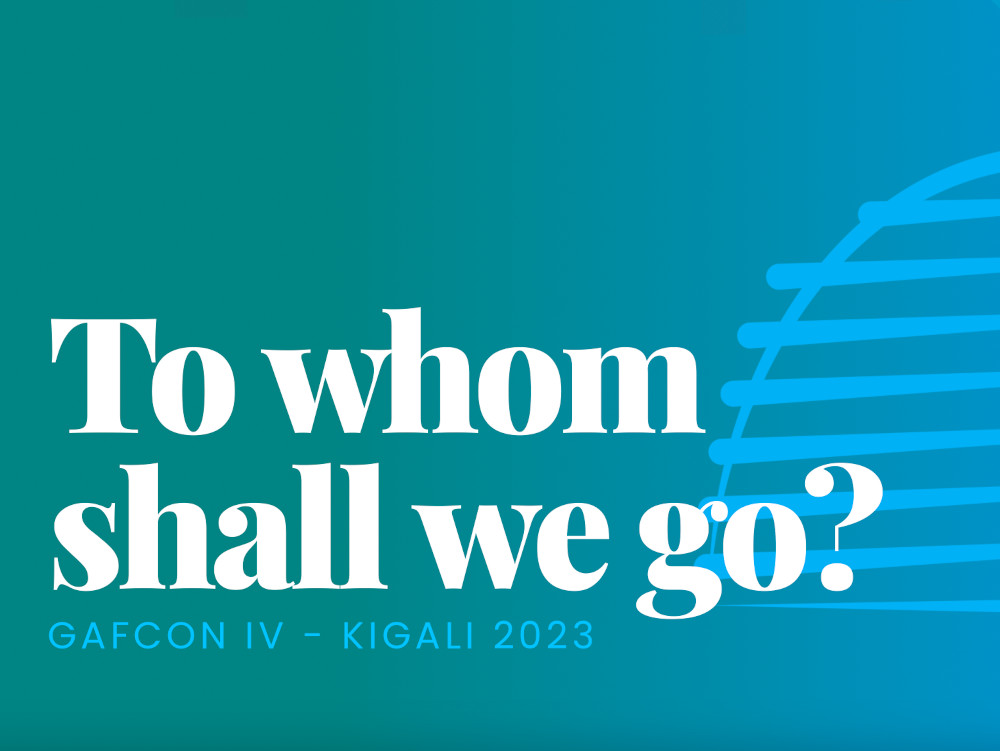The Gafcon conference is over, and The Other Cheek has set off in a minibus to meet the Anglicans of Tanzania, and see some projects the Anglican Aid organisation has been supporting.
It is just like the Contiki tours of old, except most of us are far too old – and too Christian in any case – to manage hi-jinks. But we hope to manage some highlights anyway.
The Journey began in Nairobi at the Anglican Church Guest house. We had been warmly welcomed by the Nairobi team and, at the end of a dawn to way-past-dusk Gafcon-tiki bus ride we were welcomed to Tarime diocese in Tanzania. Bishop Mwita Akir was there to greet us though fierce torrential rain had delayed us by hours.
Nairobi is 5 million strong, similar in size to Melbourne and Sydney. The traffic gave us a long time to reflect on what we saw. TLDR: the world is not a fair place.
But let’s start with A for Architecture. There’s a distinctive style of apartment block native to Nairobi. Local stone, shaped into blocks, forms orangy or grey walls, but the structural loads are carried by a concrete frame. This increasingly is the vocabulary of the ordinary home owner in this part of africa.
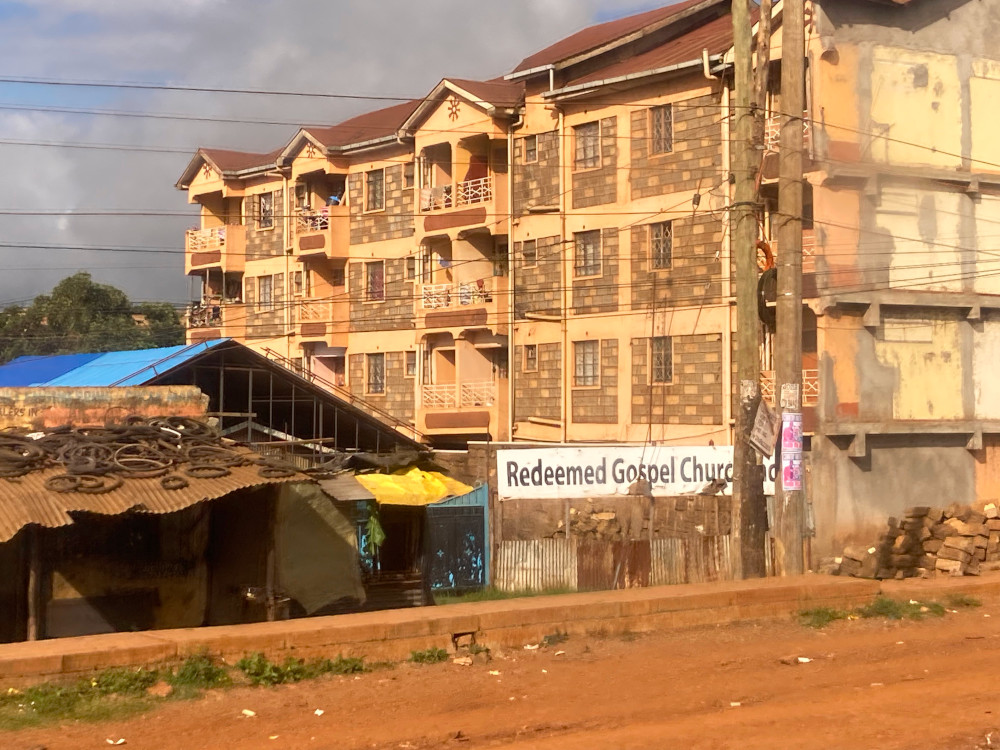
Notice the church sign. we’ll come back to them, but only to say now, there are a LOT of them.
The old Shantytown buildings are being swept away – do the displaced people move out? Tour Guide Eddie Ozols commented that, as land has become more valuable around the sort of multi-lane road we were on, many of the people living there already can buy at least a small apartment. And most of these look small. Black plastic water tanks are on top of each unit block, which probably means the water supply is unreliable – and I saw lots of water trucks.

Here’s a place along the road that has almost been transformed into something that feels like a 1960’s part of Sydney. See the water tanks outside the surviving shop.
But that’s the most comforatble part of our long journey. here’s what a lot of the highway looks like.

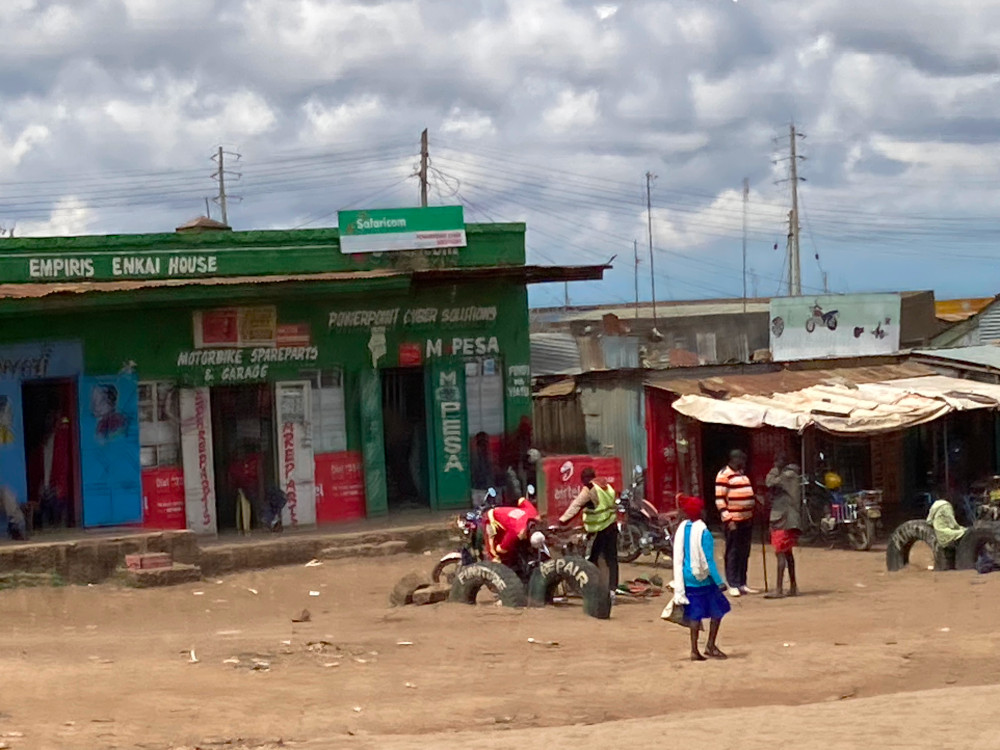
Kenyans are entreneurial, and the roadside bustles with small businesses in clusters every few kilometres. There’s also even more informal businesses: tomatoes sold in roadside booths, leeks waved by women mostly, and even sugar cane. The sheer volume of these sellers clued me into their struggle.
I did not manage a picture of a donkey, but they were there too.
Which brings us to “the long paddock.” The roadside had a huge amount lof livestock grazing the unfenced verges. Cattle, sheep, goats, and yes, donkeys. The long paddock is the name given to the old droving routes across Australia. Kenyans have revived this Aussie concept.
Oh, and there were Chickens:

Those chickens were alive and had just stopped flapping. This was at a petrol stop, and hopping on the bus, I spotted this church sign.
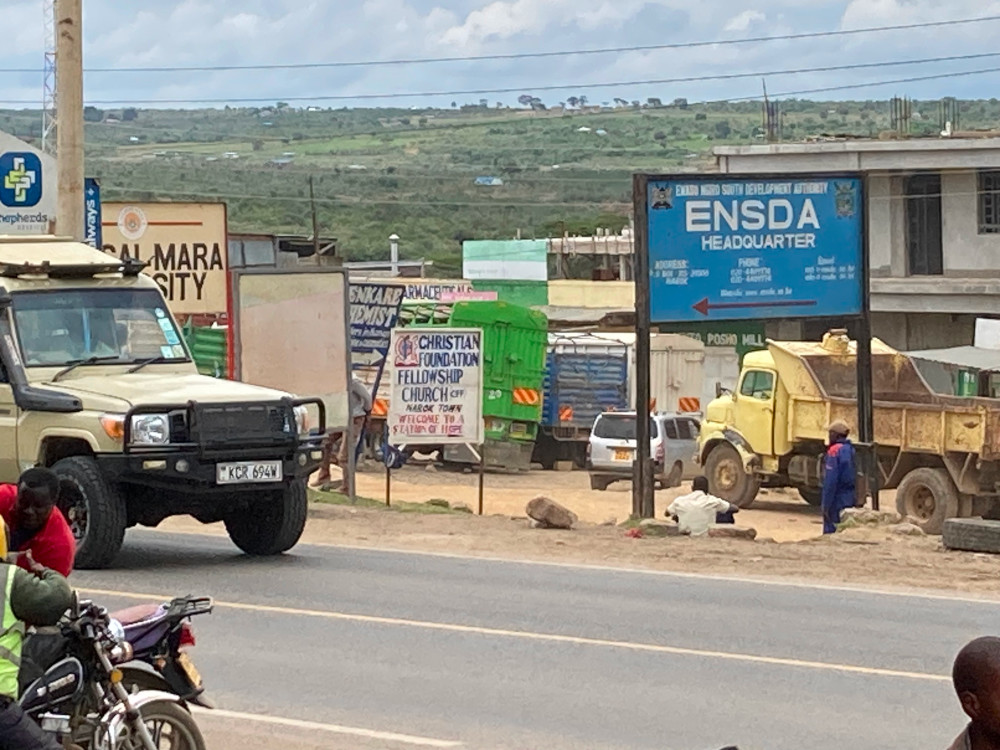
There were literally hundreds of these signs with every combination of Christianese for the name of the church. Many of them used aspirational words, for prosperity gospel churches. But “reformed” was a popular word too.
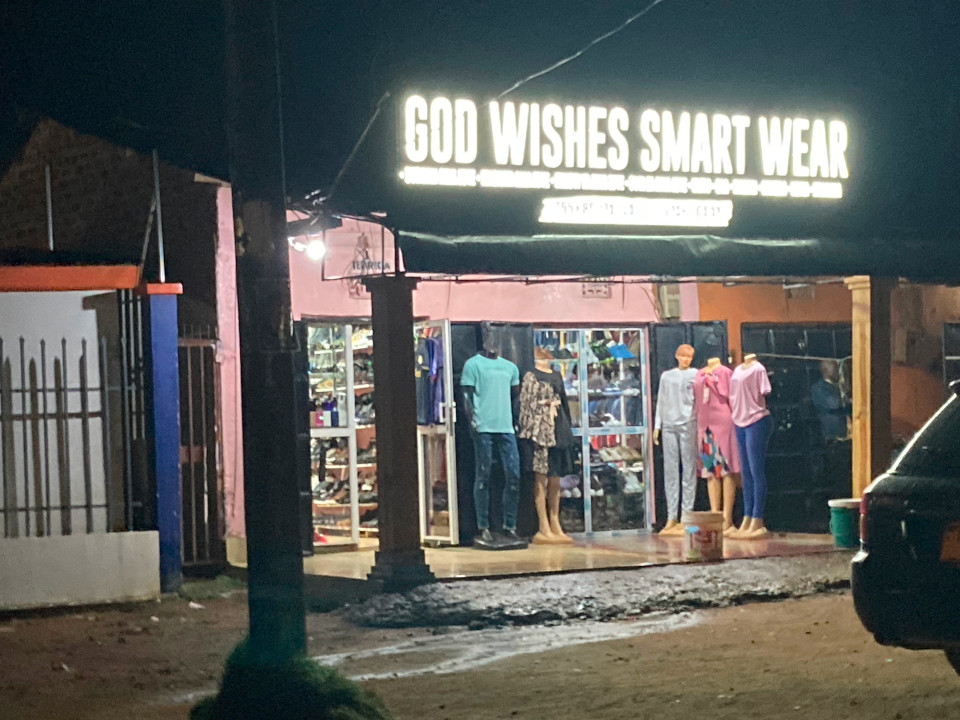
On the way to Tanzania we crossed one of the natural wonders of the world – the giant Rift valley, which runs from Jordan to Capetown. It’s impossible to take a good enough picture, but here it is.
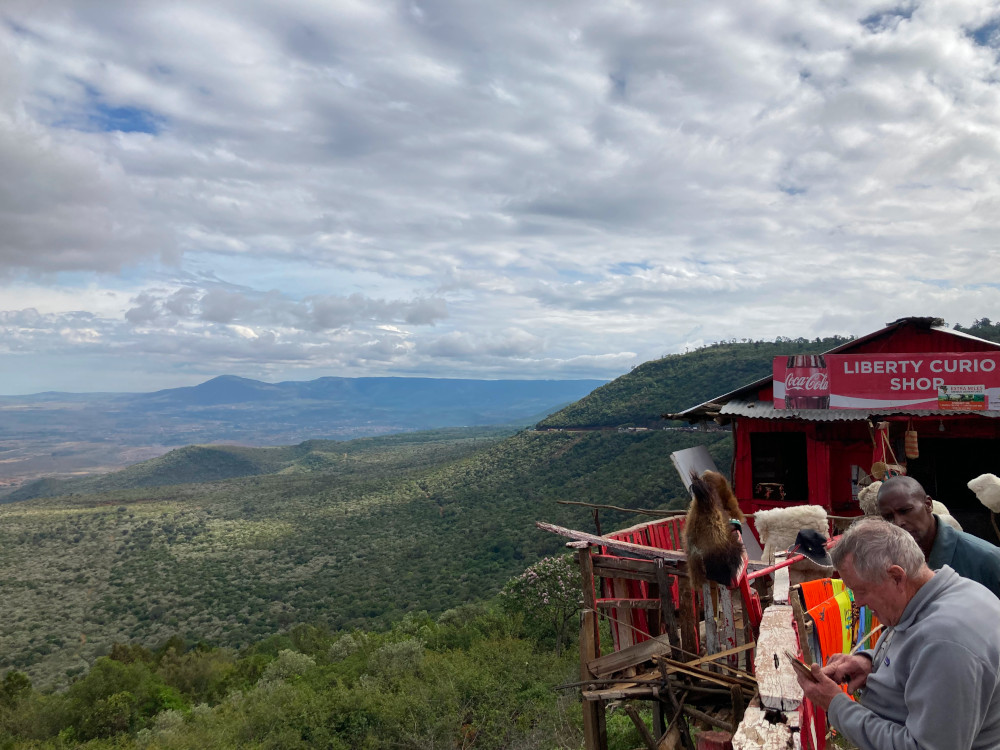
And did i mention that it rained? It bucketed down, and this is how the luggage on top of the bus stayed dry.

It was dark, well and truly, when we crossed the border into Tanzania. I could not resist this sign! Which blends the heavily Christanised-culture with a crop of East African entrepreneurism.
This was a journey through a different culture to mine. Children need to perform well at primary school to go to High School. Laborers in the field spend their lives growing the vegetables that are rushed to the roadside to sell. But what if everyone passes by? Kenya is now a middle income country rather than a developing one. So the poverty and struggle I saw along the road, is far from the worst. I felt privileged to be taken in the Gafcon-tiki tour. Privileged to live in Australia. Privileged to travel across the world. privileged for all the opportunities my kids have had at home.

